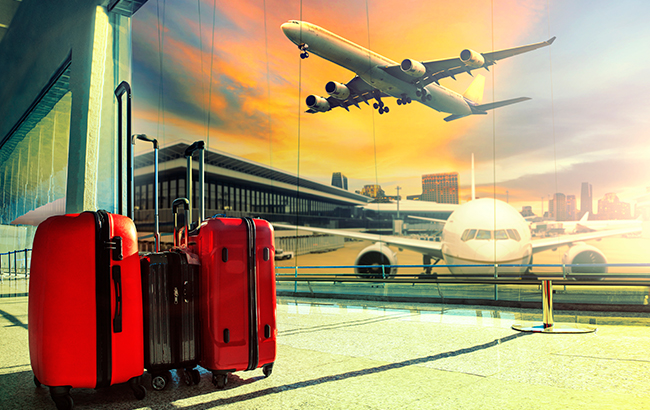Tuesday, March 19, 2024

The Easter travel plans of Australians are set to hit turbulence after the union representing airport firefighters signalled it is preparing to walk out during the holiday period, in the latest escalation of a rapidly widening federal government pay dispute.
The United Firefighters Union — Aviation Branch (UFUA) on Monday said stoppages could begin as early Thursday, March 28, as an increasing number of unions outside the Community and Public Sector Union (CPSU) covering federal employees reject the government’s recent pay deal under so-called Australian Public Service-wide bargaining.
The results from the protected action ballot for UFUA members are due on Monday, and the union’s public advance signalling of likely action indicates confidence that aviation firefighters will vote to go on strike.
Many of the unions striking representing federal workers have directly hit out at the Australian Public Service Commission’s bargaining policy because it effectively ties the hands of the bosses of non-APS agencies from cutting their own pay deals, especially when pay deals come by way of determination.
A recurring complaint is that while many public servants who perform administrative work were prepared to trade off a bigger increase against new working conditions like the right to work from home, agency employees who don’t drive a desk, like police, firefighters and tradies, have been left at a material disadvantage.
The advance notice of likely strikes at airports across Australia follows federal cops, with Australian Federal Police Association (AFPA) members also voting to take industrial action, the specifics of which are yet to be revealed.
While the AFP is responsible for security at major airports, the AFPA has previously said it will not take any action that affects safety or security.
“Airlines will be notified well in advance so that they can change their flight schedules in response to any work stoppages,” the UFUA said in a statement.
While the UFUA is currently bargaining over pay, it is also going hard on the issue of staffing levels and shortages of firefighters that it says results in “short staffing and fatigue, which puts the safety of air travellers at risk.”
“Right now, domestic and international flights are taking off and landing without the required number of aviation firefighters and trucks to protect that aircraft’s size and passenger capacity,” UFUA branch secretary Wes Garrett said.
“In some cases, flights are operating with no aviation firefighters on duty.
“At other locations, such as the Gold Coast airport, large international flights carrying up to 365 passengers did not have the aviation firefighter protection required under international aviation safety law.
Garrett said carriers would be given “a sufficient period of notice to reschedule flights” in the event of a strike and that “airlines will have seven days’ notice to reschedule or cancel flights during these periods.”
“If aviation firefighters support industrial action and the United Firefighters Union chooses to proceed with stoppages, Airlines will have seven days’ notice to reschedule or cancel flights during these periods,” Garret said.
“If airlines continue to operate during this time, they will do so in full knowledge of the risks to passengers and crews; Airservices’ would also be in breach of international and domestic safety legislation, not that this has perturbed them in recent years.
Like the federal police, Airservices Australia is pointing back to the APSC, and it clearly isn’t happy about the looming strike.
“As part of negotiations which commenced in September, Airservices has offered a $32 million pay rise comprising 11.2 per cent over three years in line with the Australian Public Service Commission’s recent pay decision, as well as the retention of all current conditions,” an Airservices spokesperson said.
The pay claims, as they stood, would “cost an additional $128 million, including a pay increase of 20 per cent, the Airservices spokesperson said, adding that as an industry-funded organisation, any increase in Airservices’ operating costs “is ultimately passed on to passengers in the form of higher airfares.”
The spokesperson agreed that the strikes, if they eventuated would cause disruption.
“The potential industrial action includes work stoppages which could disrupt the travel plans of tens of thousands of Australians and international visitors during the peak Easter holiday season, at a time when the Australian aviation sector is still recovering from the impact of the pandemic,” the Airservices spokesperson said.
“Airservices will take all available steps to minimise disruptions to flights as a result of industrial action, and will work with airlines and airports to maintain safe operations.”
The federal airports operator is also pushing back against the aviation firefighters’ union claims over safety risks.
“The Civil Aviation Safety Authority (CASA) regulates Airservices’ provision of Aviation Rescue Fire Fighting services for all international and domestic flights,” the Airservices spokesman said.
“We have sufficient ARFF [Aviation Rescue Fire Fighting] services staff to meet our operational requirements, and we are continuing to recruit to ensure that service is maintained in the future.”
The spokesperson said Airservices would continue to seek a resolution with the union “to deliver a fair outcome for our ARFF services employees that avoids disruption to the travelling public.”
It is understood Qantas will assess any protected industrial action once it is officially announced.
Federal minister for transport Catherine King was contacted for comment.
Tags: easter
Saturday, April 27, 2024